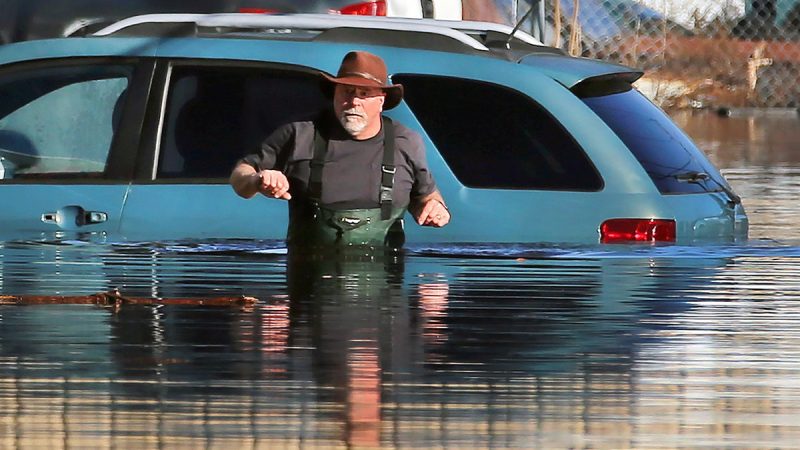House Speaker Mike Johnson, R-La., is warning that everyday Americans could be at risk in a prolonged government shutdown.
The top House Republican sat down for an exclusive interview with Fox News Digital on Wednesday, the first day of the ongoing government shutdown.
Asked how long he thought it would continue, Johnson said he was praying for a short ordeal.
‘My expectation is that I don’t know how it could go longer than a week or so, because so many people have been so adversely affected by this,’ Johnson said.
He pointed to two programs that he was concerned about in particular: The Special Supplemental Nutrition Program for Women, Infants, and Children (WIC) and the Federal Emergency Management Agency (FEMA).
‘[Democrats are] talking about healthcare. Not only did their counter-proposal say they wanted to cut the rural hospital fund and do all these other things, but what’s happening right now in the shutdown is that the WIC program is now unfunded — women, infants and children nutrition. That’s not a small thing,’ Johnson said.
WIC provides free nutrition support to low-income pregnant women, new mothers, infants and children under age 5.
On a call with House Republicans held Wednesday, Office of Management and Budget (OMB) Director Russ Vought warned that WIC could run out of funding within days without a federal funding deal, Fox News Digital was previously told.
FEMA, however, is expected to continue operations through a government shutdown, as it has in the past. But its funding source, the Disaster Relief Fund, relies on a budget that’s allocated by Congress on an annual basis.
A failure to replenish the Disaster Relief Fund could make it more difficult for FEMA to respond in the event of a natural disaster.
The National Flood Insurance Program (NFIP) is also in danger of lapsing, which could leave millions of Americans without financial help if a hurricane or other disaster hits, Johnson pointed out.
‘You have FEMA — I mean, I’m from a hurricane state. We’re in the middle of hurricane season. I’ve got two of them off the coast of the U.S. right now,’ Johnson, whose district is anchored in Shreveport, La., said.
‘If your flood insurance lapses right now, they’re shut down. Or if you go buy a new house, and you have to have flood insurance, none of that can be processed right now because they just shut the government down. I mean, this is real.’
He also expressed concern for the military members in his district who will have to work without getting paid until the shutdown is over.
‘The troops are working without pay … I have a big veterans community and active duty service member community because I have two major military installations in my district, Louisiana’s 4th Congressional [District],’ Johnson said.
‘I think a lot about these young airmen and soldiers who are deployed right now for their country, and they left behind young wives who are pregnant and have small children. They’re not going to get a paycheck until [Senate Minority Leader Chuck Schumer, D-N.Y.] comes to his senses.’
The House passed a measure to keep the current federal spending levels roughly flat through Nov. 21 to give Congress more time to reach a longer-term deal for fiscal year (FY) 2026. That bill, called a continuing resolution (CR), advanced mostly along party lines.
But in the Senate, where at least several Democrats are needed to reach the 60-vote threshold to overcome a filibuster, progress has stalled.
Senate Democrats are demanding concessions on healthcare, including an extension of COVID-19 pandemic-era Obamacare subsidies that are set to expire at the end of this year.
But Republicans have contended that their plan should remain free of any partisan policy riders.
The Senate is likely to hold another vote on the measure, its fourth in total, on Friday.










